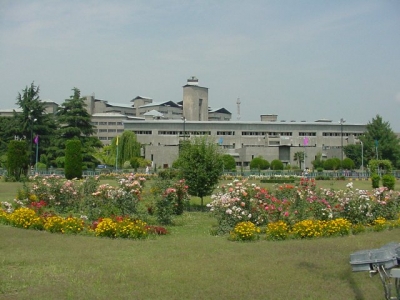Tarique A Bhat
Opinions can’t be heard if we don’t express them. Recently cricket world cup ended and twenty-twenty fever is still high. I am constantly amazed at equating the always changing Kashmir scenarios with cricket. We, the spectators of events in Kashmir are like spectators at a cricket match. Every now and then, we all expectantly await a result and get excited with each ball. The men in the field separatists, main stream politicians, governments at New Delhi and Islamabad, et al brace themselves, ready to anticipate each move by the batsman.
The batsman at the other end begins a cautious advance, just in case his colleague does something useful. The umpires give the impression of watching carefully. As the ball goes harmlessly past the batsman and the wicket into the hands of the keeper, we all relax. We have a chance to scratch ourselves or catch the latest on our favourite media platforms. For a few seconds we can allow the tension to subside until the next ball.Of course, then we can start expressing our opinions on which side is going to win.
As the days go on, we feel certain of getting a result and then all our excitement is stolen.Frankly speaking it just isn’t cricket but uneasiness of millions. We are trying to play the game, for more than 60 years it’s high time that the participants learn another trade.
In today’s Kashmir, there is a rising irreversible tide of anxiety. One cannot cast aside fear and mistrust in the name of a safer, more prosperous future. Inevitably, there is considerable skepticism. While it’s easy to be skeptical about the efforts of politicians and bureaucrats who invariably tend to promise more than they deliver, there’s no denying that there’s a palpable current of purposive energy coursing through the unmoved Kashmiri Knowledge society.Quite a few within the political class and our powerful bureaucracy are in denial, there is an emerging consensus within the civil society to appeal for greater civility and understanding in addressing the contentious issues.
The question is, do we ever long for meaningful conversations, in which we can be honest about our feelings about what is happening in the valley? Are we determined enough to confront, head-on issues faced by us. Where we can drop our roles – the masks we all present to the world – and speak from our heart? Where we can speak about the dangers and opportunities of our time, and our hopes and fears for the future, without meeting blank stares? Many people here like to be a social change agent, but don’t know where to begin.
Kashmir needs to develop an environment within society that stimulates and encourages the involvement of intellectuals in mapping the way forward.
The intellectual stratum shall perform important functions in society, such as shaping public opinion and investigating social, political, economic and philosophical questions. This requires that intellectuals should be skilled of engagement and inquiry. This means that a lot of resources are put in place within our community and in universities to raise people to the level of intellectual engagement.
We need an initiative to get people talking with each other about the concerns we share in common.















